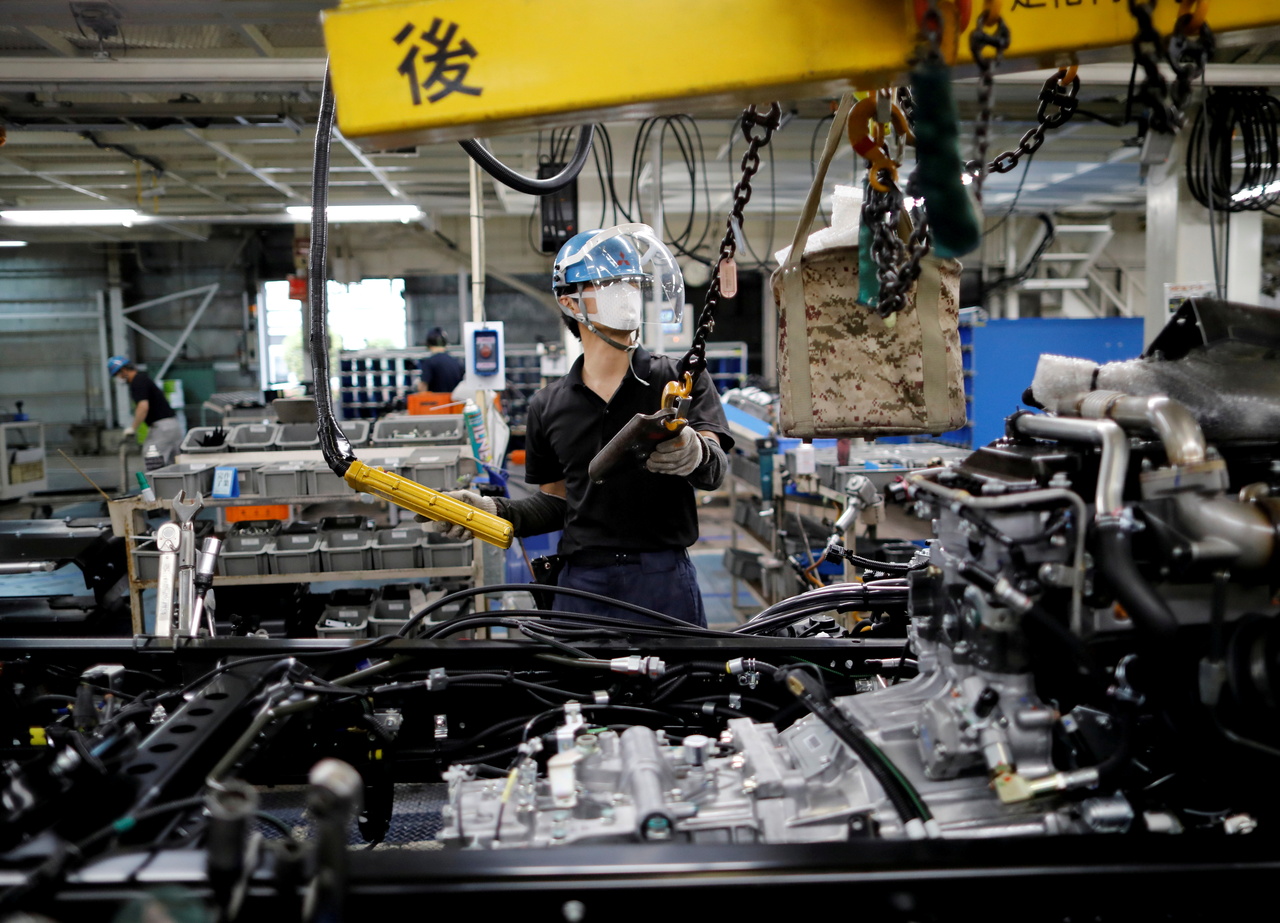Japan factory production edges up as Asia's supply snags ease
Sign up now: Get ST's newsletters delivered to your inbox

Higher output of cars and factory equipment lifted overall production 1.1 per cent from September.
PHOTO: REUTERS
Follow topic:
TOKYO (BLOOMBERG) - Japan's factory production edged up in October, ending a three-month slide and adding to signs that the global supply chain crunch may have been easing before the emergence of the Omicron variant of the coronavirus.
Higher output of cars and factory equipment lifted overall production 1.1 per cent from September, the Economy Ministry reported on Tuesday (Nov 30). Manufacturers had said they plan to boost output again this month and next, a good sign for Japan's recovery this quarter. Analysts had expected a 1.9 per cent increase in October.
A separate report showed continued resilience in the labour market, with the unemployment rate ticking down to 2.7 per cent and a measure of demand for workers showing positions on offer still outnumbering job seekers.
While Japan's manufacturing gains and positive production forecasts offer more evidence that Asia's supply chain shortages may be easing, the Omicron variant has reignited fears that a worst-case scenario could necessitate a return to growth-crippling lockdowns.
Japan on Tuesday closed its borders to new foreign arrivals, a move coming only weeks after the country managed to loosen restrictions amid plummeting case counts.
"If Omicron is found within Japan and triggers more restrictions, it could shift the recovery trajectory, but so far that doesn't seem to be happening," said economist Atsushi Takeda at Itochu Research Institute. "September appears to have been the bottom for production."
Bank of Japan governor Haruhiko Kuroda on Monday said he expects Japan's economy to return to growth in coming months, signalling that the emergence of the Omicron variant had not changed his outlook much. Analysts have been forecasting Japan's recovery to resume this quarter, now that restrictions on the service sector have mostly been lifted and the vaccination rate is above 75 per cent.
October's production gain came as parts shortages from Asia began to ease and car output increased for the first time in four months, a ministry official said.
Reports from Toyota Motor show the group raised domestic output by about 22 per cent last month, although the automaker's global output is still down by more than a quarter from 2020's level.
Manufacturers surveyed in Tuesday's report had said they plan to increase output 9 per cent this month and another 2.1 per cent in December, but the reported plans tend to be overly optimistic and the survey was taken before the Omicron variant was discovered.
Semiconductor supplies also continue to be a problem. Nissan Motor president Makoto Uchida, in an interview with Bloomberg Television this week, said the company had expected to recover from the shortages in the second half of the fiscal year, but he is less optimistic now. The firm this month cut its sales plan for the current year by 600,000 units due to continuing parts shortages.

